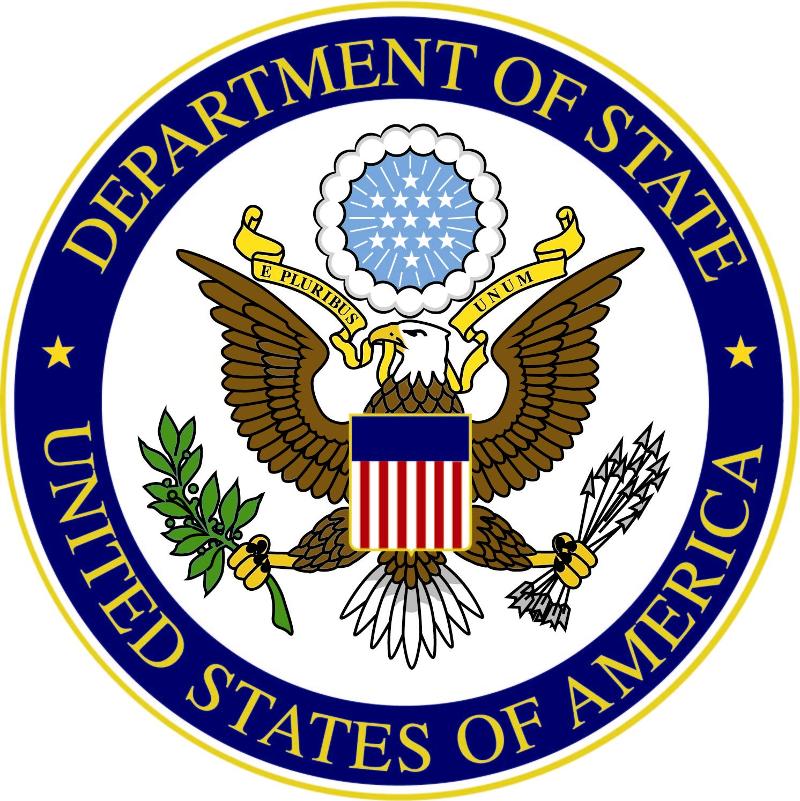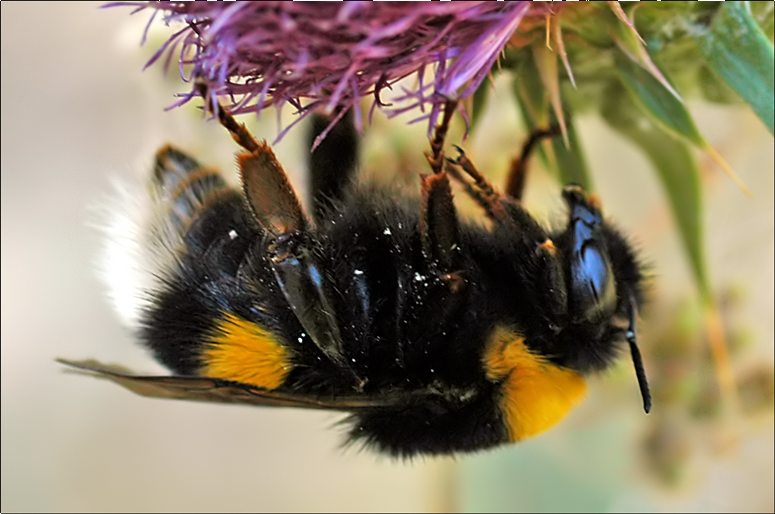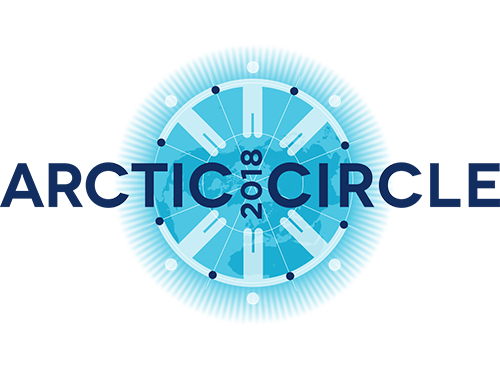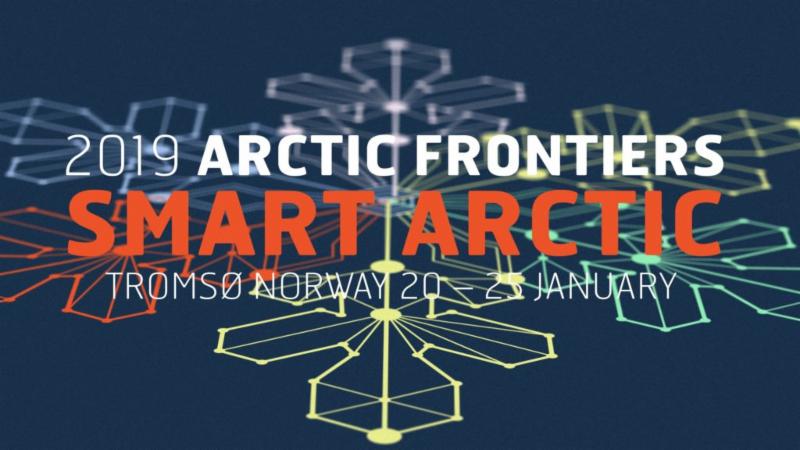|
|
|
|
|
|
|
|
The second Arctic Biodiversity Congress is hosted by the Conservation of Arctic Flora and Fauna (CAFF), the biodiversity working group of the Arctic Council, and the Ministry of the Environment, Finland. The second Arctic Biodiversity Congress will build on the success of the first Congress, held in 2014 in Trondheim, Norway, and will bring together scientists, policymakers government officials, Indigenous representatives, Traditional Knowledge holders, industry, non-governmental organizations, and others to promote the conservation and sustainable use of Arctic biodiversity.
Canada Permafrost Association Annual General Meeting, October 10-12, 2018 (Whitehorse, Yukon Canada). The Canada Permafrost Association (CPA) is being formed to address the multidisciplinary nature of permafrost-- bridging natural and social sciences, engineering, and governments. A central goal of the CPA is to assist in the transfer of knowledge between disciplines and across various demographics. This will better equip Canadians to respond to permafrost-related problems. As the inaugural meeting of the CPA, participants will take part in some of the formative discussions of the Association. In addition, there will be opportunities for participants to present research findings, keynote addresses and a field trip.
|
Media
Studies Explore Socioeconomic Implications of Ocean Acidification in the Arctic. The continuing acidification of the Arctic Ocean is projected to have significant ecological and socio-economic impacts over coming decades, with consequences both for local communities and globally. This is the overarching finding of the 2018 Arctic Ocean Acidification Assessment, presented today at the 2018 Arctic Biodiversity Congress. The assessment, conducted by the Arctic Monitoring and Assessment Programme (AMAP) of the Arctic Council, updates a 2013 assessment, and presents the chemical, biological and socio-economic impacts of ocean acidification, which is driven primarily by global greenhouse gas emissions. eNewsWire
 Principal Deputy Assistant Secretary Judith Garber Heads US Delegation to Arctic Environment Ministers Meeting. Principal Deputy Assistant Secretary Judith Garber Heads US Delegation to Arctic Environment Ministers Meeting. Judith Garber, Principal Deputy Assistant Secretary of State in the Bureau of Oceans and International Environmental and Scientific Affairs, will travel to Rovaniemi, Finland, October 11-12, 2018, to serve as the U.S. government's Head of Delegation to the Arctic Environment Ministers Meeting (AEMM). PDAS Garber will represent the United States at ministerial-level fora and in bilateral and multilateral meetings on the sidelines of the event. The United States aims to safeguard U.S. security, economic and environmental interests in the Arctic, advancing a rules-based framework to govern activities in the region, ensuring access to Arctic resources, and promoting economic growth, sustainable development and environmental stewardship. US Department of State
Polar Jet Circulation Changes Bring Sahara Dust to Arctic, Increasing Temperatures, Melting Ice. Research scientists at NYU Abu Dhabi, along with other global researchers, have identified a new mechanism by which warm dust travels from the Sahara Desert to the Arctic Circle, which has been proven to affect rising temperatures and ice melt in Greenland. Their findings highlight the role that the polar jet and associated atmospheric circulation plays in the transport of mineral dust from the Sahara Desert to the Arctic across eastern side of the North Atlantic Ocean. EurekAlert!
 In the Absence of Bees, Flies are Responsible for Pollination in the Arctic Region. In the Absence of Bees, Flies are Responsible for Pollination in the Arctic Region. Most of the fauna in the Arctic region take part in pollinating, yet during the busiest flowering weeks, there's a shortage of such services. A recent study indicates that the pollination services provided to plants and, thus, the plants' ability to produce seeds are dependent on the timing of the blooming season, and on how many other species are in bloom simultaneously. Science Daily
|
|
Future Events
 Arctic Circle Assembly, October 19-21, 2018 (Reykjavik, Iceland). The annual Arctic Circle Assembly is the largest annual international gathering on the Arctic, attended by more than 2000 participants from 60 countries. It is attended by heads of states and governments, ministers, members of parliaments, officials, experts, scientists, entrepreneurs, business leaders, indigenous representatives, environmentalists, students, activists and others from the growing international community of partners and participants interested in the future of the Arctic. Arctic Circle Assembly, October 19-21, 2018 (Reykjavik, Iceland). The annual Arctic Circle Assembly is the largest annual international gathering on the Arctic, attended by more than 2000 participants from 60 countries. It is attended by heads of states and governments, ministers, members of parliaments, officials, experts, scientists, entrepreneurs, business leaders, indigenous representatives, environmentalists, students, activists and others from the growing international community of partners and participants interested in the future of the Arctic.
Arctic Science Forum Associated with the 2nd Arctic Science Ministerial, October 25, 2018 (Berlin, Germany and via webcast). How vulnerable and how resilient are nature and the people of the Arctic region? How well do we understand the regional and global dynamics which are driving change in the Arctic? What impact will change in the Arctic have on us? These and other questions are the focus of this two-day conference. It will take interdisciplinary research in the Arctic to gain an understanding of past and future processes - a complex and cost-intensive venture. This makes an international network of Arctic research so important for delivering better results. Cooperation in research, the exchange of data, collaborative observation and monitoring schemes - international cooperation is imperative in research on the Arctic.
Only the Science Forum, on October 25th, will be webcast. The Arctic Ministerial, on October 26th, will NOT be webcast.
Maritime & Arctic Security & Safety Conference (MASS18) "Arctic Technology" November 15-16, 2018 (Newfoundland & Labrador Canada). Now in its sixth year, MASS has gained an international reputation as a must-attend event to gain a wide perspective on challenges, opportunities and policies related to the Arctic and North Atlantic maritime environments. The aim of this Government of Canada and the Government of Newfoundland and Labrador supported international conference is to promote stakeholder collaboration, technological innovation, harsh environment research & development, and world-class education efforts that are contributing to both Maritime and Arctic issues. This two day conference will draw a diverse group of speakers and attendees representing government, military, Canadian and U.S. Coast Guard, industry, academic leaders, Northern Leaders, research and other key stakeholders. We hope you can join us to be a part of this important dialogue
American Geophysical Union Fall meeting, December 10-14, 2018 (Washington, DC USA). The AGU 2018 Fall Meeting will mark another dynamic year of discovery in Earth and space science, serve as the advent of AGU's Centennial year, and provide a special opportunity to share our science with world  leaders in Washington, D.C. As the largest Earth and space science gathering in the world, the Fall Meeting places you in the center of a global community of scientists drawn from myriad fields of study whose work protects the health and welfare of people worldwide, spurs innovation, and informs decisions that are critical to the sustainability of the Earth.
ArcticNet: Annual Scientific Meeting 2018, December 10-14, 2018 (Ottawa, ON Canada). Canada's North is experiencing unprecedented change in its sea and terrestrial ice, permafrost and ecosystems under the triple pressures of climate change, industrialization and modernization. The impacts of these pressures can be seen on food and energy security, shipping, sovereignty, northern community health and well-being, and sustainable development and resource exploitation. All these issues have brought the North to the forefront of national and international agendas. Building on the success of its previous Annual Scientific Meetings and International Arctic Change Conferences, the Arctic Network of Centers of Excellence announces the 14th ArcticNet Annual Scientific Meeting.
 Arctic Frontiers, January 20-25, 2019 (Tromso, Norway). The Arctic Frontiers is a global scientific conference on economic, societal, and environmental sustainable growth. This year's theme will be "Smart Arctic," with a pan-arctic emphasis, and an effort to build new partnerships across nations, generations and ethnic groups. Arctic Frontiers provides a forum for dialogue and communication between science, government and industry. The plenary program will have five main sessions: State of the Arctic, Blue Growth, Smart Solutions, Bridging the Gap, and Arctic business prospects. An abstract-driven science program will address Plastics in the Ocean, the Future of Governance and Handling Vulnerability in Arctic Ecosystems, State of the Arctic and A Smart Arctic Future.
 of the AAG includes over 8,500 geographers converging from the U.S., Canada, and nearly 60 other countries in a typical year including geographers, GIS specialists, environmental scientists, and other leaders for the latest in research and applications in geography, sustainability, and GIScience. of the AAG includes over 8,500 geographers converging from the U.S., Canada, and nearly 60 other countries in a typical year including geographers, GIS specialists, environmental scientists, and other leaders for the latest in research and applications in geography, sustainability, and GIScience.
|
|

  
4350 N. Fairfax Drive, Suite 510
Arlington, VA 22203, USA
External links in this publication, and on the USARC's World Wide Web site ( www.arctic.gov) do not constitute endorsement by the US Arctic Research Commission of external Web sites or the information, products or services contained therein. For other than authorized activities, the USARC does not exercise any editorial control over the information you may find at these locations. These links are provided consistent with the stated purpose of this newsletter and the USARC Web site.
|
|
|
|
|
|
|
|
|
 Principal Deputy Assistant Secretary Judith Garber Heads US Delegation to Arctic Environment Ministers Meeting. Judith Garber, Principal Deputy Assistant Secretary of State in the Bureau of Oceans and International Environmental and Scientific Affairs, will travel to Rovaniemi, Finland, October 11-12, 2018, to serve as the U.S. government's Head of Delegation to the Arctic Environment Ministers Meeting (AEMM). PDAS Garber will represent the United States at ministerial-level fora and in bilateral and multilateral meetings on the sidelines of the event. The United States aims to safeguard U.S. security, economic and environmental interests in the Arctic, advancing a rules-based framework to govern activities in the region, ensuring access to Arctic resources, and promoting economic growth, sustainable development and environmental stewardship. US Department of State
Principal Deputy Assistant Secretary Judith Garber Heads US Delegation to Arctic Environment Ministers Meeting. Judith Garber, Principal Deputy Assistant Secretary of State in the Bureau of Oceans and International Environmental and Scientific Affairs, will travel to Rovaniemi, Finland, October 11-12, 2018, to serve as the U.S. government's Head of Delegation to the Arctic Environment Ministers Meeting (AEMM). PDAS Garber will represent the United States at ministerial-level fora and in bilateral and multilateral meetings on the sidelines of the event. The United States aims to safeguard U.S. security, economic and environmental interests in the Arctic, advancing a rules-based framework to govern activities in the region, ensuring access to Arctic resources, and promoting economic growth, sustainable development and environmental stewardship. US Department of State In the Absence of Bees, Flies are Responsible for Pollination in the Arctic Region. Most of the fauna in the Arctic region take part in pollinating, yet during the busiest flowering weeks, there's a shortage of such services. A recent study indicates that the pollination services provided to plants and, thus, the plants' ability to produce seeds are dependent on the timing of the blooming season, and on how many other species are in bloom simultaneously. Science Daily
In the Absence of Bees, Flies are Responsible for Pollination in the Arctic Region. Most of the fauna in the Arctic region take part in pollinating, yet during the busiest flowering weeks, there's a shortage of such services. A recent study indicates that the pollination services provided to plants and, thus, the plants' ability to produce seeds are dependent on the timing of the blooming season, and on how many other species are in bloom simultaneously. Science Daily


